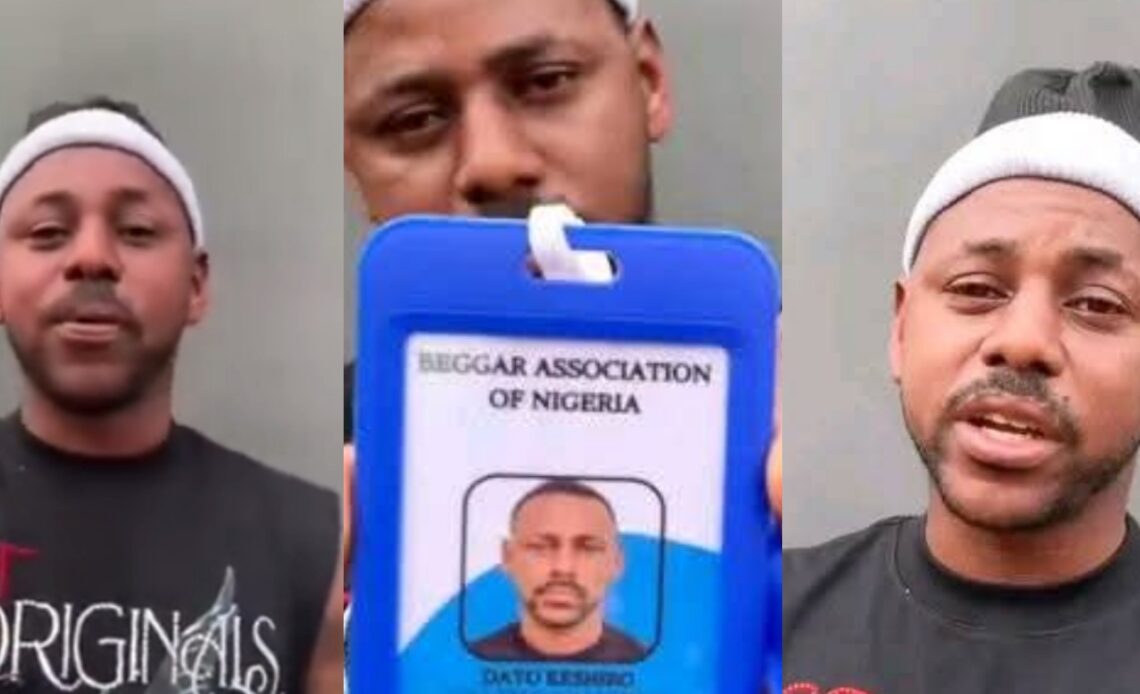
-
A viral TikTok video surfaced showing a self-declared CEO of a new beggars’ association in Nigeria.
-
The man in the clip, who is also a content creator, displayed an ID card and invited aspiring beggars to join.
-
The video arrives amid a tense policy moment after FCT Minister Nyesom Wike warned of arrests for beggars in Abuja.
-
Human-rights group SERAP publicly urged the minister to withdraw the arrest threat and stressed dignity and rights for marginalized people.
-
The episode has reopened debates about whether begging should be criminalized, rehabilitated, or addressed through broader social safety reforms.
-
Advocates say the focus should be on tackling poverty’s root causes and protecting economic and social rights, especially in the capital.
Nigeria’s social media space has been thrown into a frenzy after a viral TikTok video introduced an unusual development — beggars in the country now appear to have a formal association, complete with a self-styled Chief Executive Officer (CEO).
In the video, the man who declared himself leader proudly displayed an identification card, claiming that the group was open to new members who aspired to become “professional beggars.” He invited others to join, describing the organization as a platform where ambitions of begging could be turned into reality.
The timing of this revelation has amplified its impact. Just days earlier, Nigeria’s Federal Capital Territory (FCT) Minister, Nyesom Wike, warned that beggars in Abuja faced imminent arrests if found on the streets. His remarks ignited strong reactions, with critics arguing that criminalizing begging would only worsen the plight of those trapped in poverty.
Adding to the controversy, the Socio-Economic Rights and Accountability Project (SERAP) issued a counter-statement, urging Wike to retract his threat. According to the rights body, the government’s responsibility is not to punish the poor but to create sustainable policies that address the conditions pushing citizens into destitution.
Now, with the rise of an organized “beggars’ union” on one hand and the threat of a state crackdown on the other, Nigeria finds itself at the center of a heated debate on poverty, dignity, and governance.
Reflection
The sudden appearance of a “CEO of beggars” would be comic relief if it didn’t point to a much darker truth: poverty in Nigeria has reached a point where even desperation itself is being formalized. The imagery of beggars holding ID cards and claiming organizational structures is symbolic of a society where survival strategies are dressed up as professions because real opportunities are scarce.
Minister Wike’s promise to arrest beggars reflects a long-standing policy mindset that treats poverty as a public nuisance rather than a systemic failure. Arrests and police harassment may clear street corners, but they do nothing to create jobs, improve access to healthcare, or provide rehabilitation for those who need it most. It is a short-term fix to a long-term problem.
SERAP’s intervention, in contrast, highlights the human rights lens. Poverty is not a crime, and those at the margins deserve support, not punishment. The group’s call emphasizes dignity, which is often lost in the conversation about beggars who are frequently reduced to statistics, inconveniences, or viral videos.
What is particularly striking about this moment is the irony. In most societies, unions and associations exist to protect workers’ rights and improve welfare. In Nigeria, beggars now feel compelled to mimic that structure, not for better wages but for survival and recognition. This move could be seen as satire, resilience, or both — but either way, it underscores how deeply inequality is embedded in the country.
The real challenge lies in shifting the national conversation. Instead of asking whether beggars should be allowed to form associations, the more urgent question is why so many Nigerians are forced into begging in the first place. Until policymakers address unemployment, inflation, and lack of social protection, new “beggars’ unions” will keep emerging, and threats of arrest will keep repeating themselves, with no real solution in sight.
This story is less about an eccentric CEO and more about what his existence represents: a nation where desperation has been organized, and where dignity is still waiting for a seat at the table.
Watch video below:
@beeftvnaijaGba’s Gbo’s central!! Werey don open Beggar Association of Nigeria as the CEO, if you want to become a beggar, you can reach out to him#beefTVnaija #fyp #nigeriatiktok🇳🇬🇳🇬🇳🇬 #fouryou #videoviral